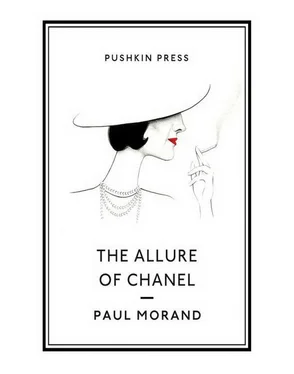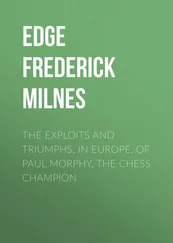When I knew him, he had returned from Rome with Satie and Cocteau. It was Parade ; his famous cardboard cut-out ‘managers’ were shuffling rhythmically across the stage of the Châtelet. He was emerging from cubism and gummed papers. I was later involved with the revolutions that periodically shook the rue de La Boétie. I witnessed the success of his designs and the public acclaim, one after the other, of Le Tricorne and Pulcinella .
I would often climb up to his alchemist’s den. I saw Apollinaire make his appearance and pass him by, the gatherings in rue Huyghens and rue Ravignan, both at first hand or from what Reverdy or Max Jacob told me. I saw him stop being the exclusive property of Manolo and Paysan, of Grenwitz and Baron Mollet, to become the equal of Stalin and Roosevelt. I saw Ambroise Vollard and Rosenberg hovering around the treasure-house that produced treasures. I saw Cocteau on his path of seduction, Dada flirting, the surrealists showering praise on him. I saw the Modiglianis and the Juan Gris come and go, and Picasso remain. Apollinaire said of him that his inner rhythm had the monotony of Arab rhythm. The centuries pass, the civilisations crumble, Allah remains great and Picasso is his prophet. He is also a demon. He will come back to disturb generations of young painters at the séance tables. When he goes to the Louvre, his guitars will frighten people, and at night, the duty watchman and his statues will set off in the darkness, despite the patrols, to walk around the Egyptian gallery.
7 Eugène Labiche (1815–1888). French playwright who observed in minute detail the foibles and fashions of Second Empire society. The pun on the words maîtres and mètres is untranslatable. [Tr]
FORAIN AND I GOT ON WELL. I was young and defenceless. There was a suspension of hostilities. He took charge of my education. He took me to the cabaret. With his crooked mouth, his beady eye, his acute sensitivity, open-hearted as always, using his vocal cords as he would the string of a bow, and pierced himself by as many arrows as he fired, Forain made me understand that Paris of a quarter-of-a-century ago, which, in its resonances and small proportions, still resembled the Paris of the Second Empire.
“Do you like Mother Edwards? Don’t trust those sorts of people. They’re bastards! It doesn’t suit you … My girl, the human species is not very nice … I’m told you go around with queers … I’m telling you one last time: fairies, they’re all bastards!”
He would go on like that all day long. It was July. He couldn’t stop walking the streets. I was delayed because of my dress collection. Paris in July is delightful. Everything is lovely and empty, the Parisians who are there for the day have left. One has the city to oneself.
“Let’s go and have dinner. I won’t leave you again … What is it now? Is that you, Jean-Loup?” (Forain’s son emerged.) “What do you want?”
“Papa, give me some dosh.”
“No.”
Forain put on his overcoat and wound his Bruant-style scarf around his neck.
“Papa, give me some dosh …”
“Sh—!”
Forain polished his spectacles and put them to soak in turpentine.
“Papa, give me some dosh …”
The father’s face suddenly lit up:
“Isn’t he nice?”
“Yes,” I said to please him, “your son is charming.”
Forain’s love for Jean-Loup sparkled, like a fire you blow on.
“Really? You find him charming?”
We went to dinner. I talked to him about Marie Laurencin, in whose work the Groults then held exclusive rights.
“Her painting, it’s like some dreary needlework … She stitches soles together …”
He relaxed, his mouth grew less bitter, and he asked me to sing him a song. He especially liked this one:
Il monta sur la montagne
Pour entendre le canon
Le canon tonna si fort
Qu’il fit dans son pantalon …8
It was at Gaufres. He grabbed Georges Hugo at the bar, by the tail of his English sportscoat, made of thick, checked material, like a horse blanket!
“Listen to this, Georges:
Le canon tonna si fort …
He taught me about life:
“Never trust stupid people; choose people who are dishonest instead.”
Or again:
“Be careful of drug addicts. Drugs don’t make people nasty, but they bring out the nastiness.”
We parted:
“I want to paint your portrait. Come to the studio.”
I went to Forain’s home. I was about to climb up to the second floor. But, at the first floor, I was grabbed by Madame Forain.
“I really must paint your portrait …” she said to me.
She wouldn’t let me go. Forain was waiting for me impatiently, on the landing.
“You were stopped on the way by Madame Forain, eh, admit it. Did she want to prevent you from sitting for me? She’ll pay for that, the bitch!”
Forain was blowing his nose on a red handkerchief.
“I’m going to tell you the latest thing she did, I’m going to tell you what she found … She went through my pockets … she got hold of my love letters … She didn’t breathe a word to me about them, but she simply glued them to her fan! At a certain point, during a grand dinner party, she opened her fan, in front of everybody …”
8 He climbed up the mountain/ To listen to the gun/ The gun roared so loudly/ That he soiled his trousers. [Tr]
IT WAS AT ABOUT THIS TIME that I left the Ritz Hotel and moved into the Faubourg Saint-Honoré.
People said of the way the place was furnished that it was in England that I learnt about luxurious decor. That’s wrong; luxury, for me, meant the house of my uncle from Issoire, and that has remained with me: fine Auvergne furniture ‘polished by age’, dark, heavy woods from the countryside, purple cherry wood, pear wood that was black beneath its sheen, rather like Spanish credence tables or Flemish sideboards, Boulle clocks in a tortoiseshell stand, cupboards with shelves that bent under the weight of clothes. I had thought that my childhood was a modest one, but I realise it was sumptuous. In Auvergne, everything was real, everything was big.
So you see, when I arrived in Paris, I wasn’t particularly overawed. It was people who amazed me, not their furnishings. I wanted to meet Cécile Sorel, about whom the contributors to l’Illustration (Christmas issue) engrossed their country readers. Capel took me to her house. It was some time in 1916. Sitting at the table was a woman who did not take her eyes off me: it was Misia. I was seated next to Sert. I liked Sorel, but the unpolished woodwork seemed to me to be made of plaster, the gold tablecloth was not gold, and was dirty what’s more; they had casually placed fruit over the stains to make it look like a garden of Eden. The silverware was even less polished than the furniture.
Opposite me, the lady with the little chignon in the shape of a shell, with a sort of mandarin orange stuck on the top of her head, seized hold of me after dinner, and never left me.
“I also overlook the river, a few doors along. Come and see me.”
Misia lived above the Journal officiel (she really did) on the second and top floor of a small, ancient house on the corner of the rue de Beaune. When I saw all that pile of objects, I thought she must be an antique-dealer. Capel, who came with me, thought so too. He asked, quite shamelessly: “Is it for sale?” Those fish in aquariums, those ships in bottles, those negroes made of spun glass, those windows full of fans with steel sequins, overlooking the Place Royale; I was appalled. It smelt of filth downstairs; there was no surface upon which you could use a duster or apply any polish; scarcely a flurry from that horrible object, the feather duster, which fortunately one only sees nowadays beneath the arm of servants in the first acts of plays. There was the same doctrine of clutter at Catherine d’Erlanger’s home; it wends its way along walls, piles up underneath tables, proliferates on the stairs, the cupboards no longer shut … Where was I? There: I’ve caught my train of thought again. When, later on, I lived in England, I rediscovered the luxury of my uncle from Issoire, oak furniture polished with white wax, large pieces of furniture, real ones, the tranquillity of the Middle Ages. The interior of a home is the natural projection of the soul, and Balzac was right to attach as much importance to it as he did to clothing.
Читать дальше












